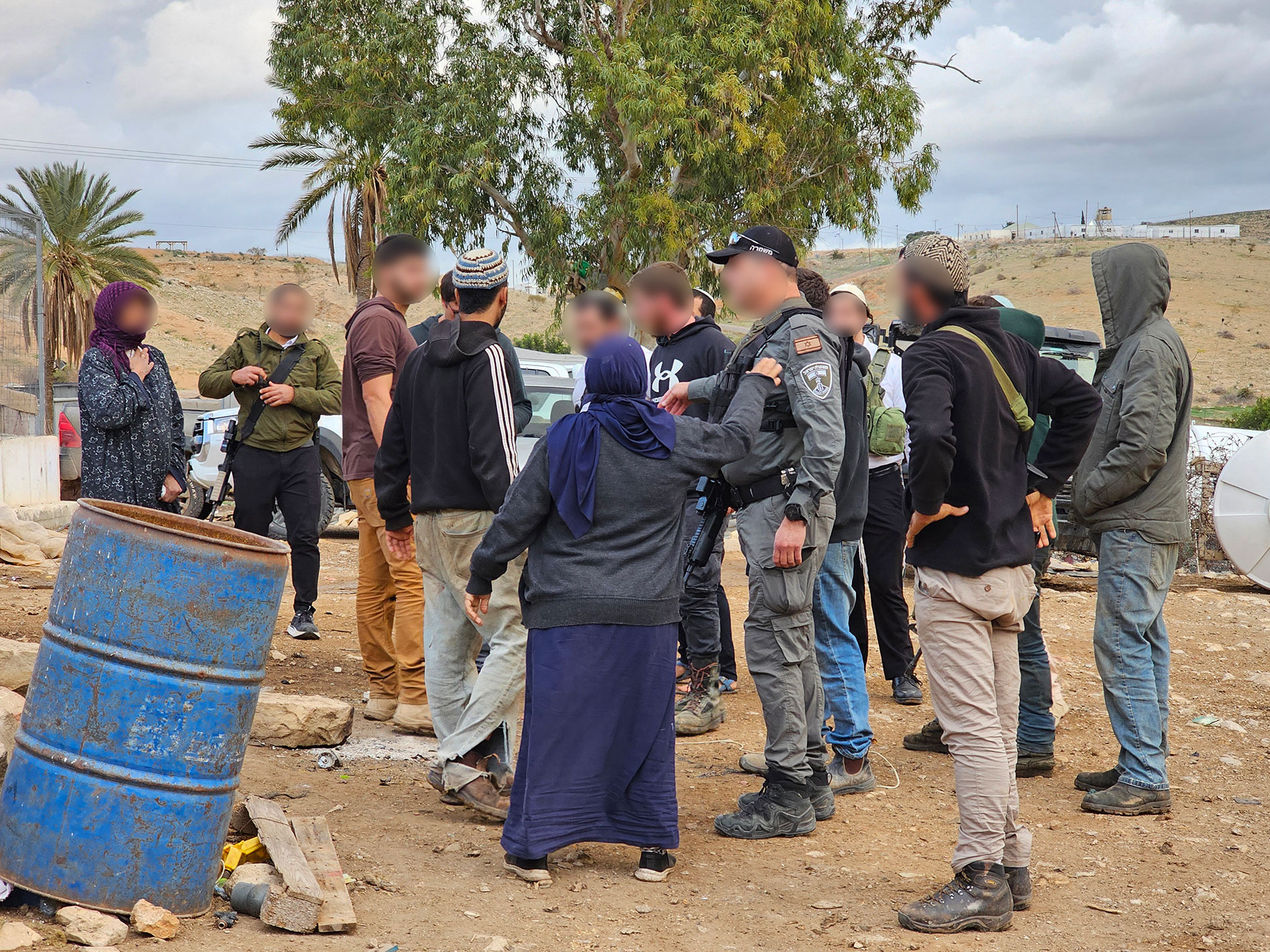Palestinian Jordan Valley: oral report
Quote: you Palestinian are not allowed what is allowed for Jewish settler-colonists
“Why don’t you chase away the settler-colonist’s flock as well?” asked the Palestinian shepherd.
“Because what he is allowed, you are not” answered the soldier in charge of enforcing the (apartheid) law in the Palestinian Jordan Valley.
The settler-colonist, “Uri”, who two years ago erected his own pirate outpost on the fringes of the Umm Zuka nature reserve close to an army base, has been living there with his family ever since, as the only permanent residents at the outpost. And on his own initiative he has taken over hundreds of dunams of land from Hemdat settler-colony to Rotem settler-colony. How does he do it? He is backed up by the Israeli army as well as the Nature and Parks Authority of the northern Jordan Valley.
Answering journalist Amira Hass query, the Israeli government’s Coordinator of Government Action in the Occupied Territories answered that the outpost is illegal and had issued an edict to forbid construction. Namely, it is actually forbidden to build any new structures there.
Several months later, when it was discovered that this illegal outpost receives a free water supply from the army base, the outpost moved to a new site deep inside the nature reserve. Naturally everything built there violates the edict, but no one has come to demolish it. On the contrary, it is now getting its water from settler-colony Hemdat, and an access road has even been paved. Several pre-army-age youths stay with Uri and his family (the kind we call “the hills youth”, all religious Jews from West Bank settler-colonies) who have dropped out of the school system. They work there as volunteers and with their help he raises cattle.
Ever since they came to the area, these youngsters have been systematically harassing the Palestinian shepherds and scaring them away from their grazing grounds by throwing stones, running wild among the sheep on their mini-tractors, threatening and more. The Palestinians are afraid and take their livestock back in. If they do not, the hooligans summon the Israeli army. Some soldiers arrive and order the Palestinian shepherds to leave.
Until recent weeks “Uri” was active especially around Hemdat settler-colony and harassed Palestinian shepherds from Hadidiya, Khalat Makhoul and Samra. One of the Samra shepherds who had been victim to these harassments daily for months finally gave up, sold his herd and left the area.
Lately “Uri” has transferred his flock, or some of it, to Maskiyot settler-colony and taken over the area all the way to Rotem settler-colony, about 10 km from Hemdat. The Palestinian shepherds from En Al Hilwa, Umm Jimal and Farisiya have been told they can now no longer cross the Allon Road and graze their flocks east of it. That area is marked on maps as the Umm Zuka nature reserve, although no “reserve” activity takes place there, except for chasing away the Palestinian shepherds and their flocks.
These shepherds are in deep trouble. The grass that sprouted after the first rains is still too meager. They still need the remains of last winter’s grass and keep looking for areas that offer something for their livestock. Two days ago S. from Umm Jimal entered a grazing ground east of the road and ran into “Uri” and his flock. The latter summoned the army and they arrested S. claiming that he entered the nature reserve with his flock! The soldiers held S. at the army base for over 5 hours, shackled and blindfolded. He was finally released following Taayush volunteers’ intervention.
Why is the Jewish settler-colonist allowed to live inside the nature reserve and graze there, whereas the Palestinian shepherd is arrested? This is tackled by volunteers of Taayush and Combatants for Peace who accompany some of the threatened shepherds, usually in the southern parts of the Palestinian Jordan Valley. So far they have been hardly active around Maskiyot. “Uri” has a herd of fine quality cattle, about 280 cows, each costing over 1000 shekels. Since he started the outpost he has only been buying more and more cows.
What is the source of his livelihood, his and the boys’ who work for him? Where is all that money coming from? Who finances them? Who sent him to live there and authorized him to chase away the local Palestinians, most of whom are shepherds?
I heard all of this from the Palestinian neighbors, as well as during visits to this outpost about a year ago.
Jordan Valley
See all reports for this place-
Jordan Valley The Jordan Valley is the eastern strip of the West Bank. Its area consists of almost a third of the West Bank area. About 10,000 settlers live there, about 65,000 Palestinian residents in the villages and towns. In addition, about 15,000 are scattered in small shepherd communities. These communities are living in severe distress because of two types of harassment: the military declaring some of their living areas, as fire zones, evicting them for long hours from their residence to the scorching heat of the summer and the bitter cold of the winter. The other type is abuse by rioters who cling to the grazing areas of the shepherd communities, and the declared fire areas (without being deported). The many groundwaters in the Jordan Valley belong to Mekorot and are not available to Palestinians living in the Jordan Valley. The Palestinians bring water to their needs in high-cost followers.
 Sarah PostecDec-27-2026Hammam al-Malih: Border Guard and settlers in the compound
Sarah PostecDec-27-2026Hammam al-Malih: Border Guard and settlers in the compound
-